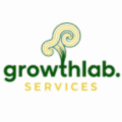
In today’s fast-moving digital world, having a strong Digital Marketing Strategies is no longer optional—it’s essential. Whether you’re a bakery in Brooklyn or a service-based business in Syracuse, the right strategy can skyrocket your visibility and sales.
Table of Contents
ToggleWhy Digital Marketing Strategies Matter More Than Ever
The online world is where your customers are. From smartphones to desktops, people are constantly searching, scrolling, and buying. Without strong Digital Marketing Strategies, you’re missing out on leads, engagement, and sales. Let’s not make that mistake.
Understanding the Core of Digital Marketing
Digital marketing isn’t just ads on Google. It’s a full ecosystem of channels working together. A solid plan includes SEO, email, social media, content, and more. When aligned correctly, Digital Marketing Strategies become your business growth engine.
Set Clear and Measurable Business Goals
Before anything, define what success looks like.
Are you aiming for brand awareness or more sales? Clear goals are the backbone of effective Digital Marketing Strategies. Every campaign, channel, and decision should align with these objectives.
Set SMART goals — Specific, Measurable, Achievable, Relevant, and Time-bound — to keep your Digital Marketing Strategies focused and results-driven.
| Goal Type | Example |
|---|---|
| Awareness | Increase website traffic by 40% in 6 months |
| Engagement | Get 500 new email subscribers monthly |
| Conversion | Improve lead-to-sale rate by 10% |
Know Your Ideal Customers Inside and Out
Digital marketing strategies is most effective when it talks directly to the right people. Who are they? Where do they live? What do they care about? Building customer personas helps your Digital Marketing Strategies stay laser-focused.
Age range: 25–60 years
Location: New York, United States
Interests: Business growth, branding, lead generation
Behavior: Uses Facebook, Google, and email for business
Build a Conversion-Ready Website
If it’s slow, confusing, or outdated, visitors will bounce — fast. A strong online presence is a key part of digital marketing strategies. Make sure your website is fast, mobile-friendly, and optimized for conversions. Add clear Call-To-Actions (CTAs) that guide visitors toward your business goals. Smart digital marketing strategies start with a website that sells even when you’re offline.Key elements your site should have:
Clear value proposition
Mobile responsiveness
Simple navigation
Lead forms or appointment scheduling
Social proof (testimonials, reviews)
Nail Your Search Engine Optimization (SEO)
SEO is the backbone of your Digital Marketing Strategies. If your business doesn’t appear on the first page of Google, it may as well be invisible. Focus on both on-page and off-page SEO for maximum results.
Use keyword-rich meta titles and descriptions
Create valuable blog content around customer questions
Get backlinks from local directories and niche sites
Use schema markup for local SEO
Regularly update your Google Business Profile
For in-depth tactics, check out this external resource:
A full strategy guide by SEMrush focused on actionable SEO, content, and campaign planning for small businesses. Semrush
Invest in Paid Advertising (PPC)
While SEO takes time, PPC gives immediate results. Whether it’s Google Ads or Facebook Ads, they allow you to target by age, location, interests, and behaviors. That’s perfect for small businesses looking to make an impact fast.
Tips for success in PPC:
Use high-intent keywords
Create irresistible ad copy
A/B test multiple versions
Track conversions and ROAS
Retarget abandoned visitors
Create Engaging Content That Converts
Content isn’t just blogs. It’s videos, podcasts, infographics, and email newsletters. Good content builds trust and positions you as an expert. Your Digital Marketing Strategies must include a clear content calendar and repurposing plan.
Here’s a simple content calendar table:
| Day | Content Type | Platform |
|---|---|---|
| Monday | Blog post | Website |
| Wednesday | Instagram Reels | |
| Friday | Newsletter | |
| Sunday | Podcast Clip | Facebook/YouTube |
Boost Presence with Social Media Marketing
Social media is where conversations happen. As part of your Digital Marketing Strategies, focus on platforms where your audience is most active—like Facebook, Instagram, and LinkedIn. Share valuable content, run targeted promotions, and engage with comments. That’s how communities build and trust grows. Use these tips:
Post consistently using scheduling tools
Use hashtags and geotags
Host giveaways or Q&A sessions
Run retargeting ads
Collaborate with micro-influencers
Leverage Email Marketing to Nurture Leads
Email is still king when it comes to ROI. It’s personal, direct, and cost-effective. Successful Digital Marketing Strategies must include email automation, segmentation, and personalized content to effectively guide leads down the funnel. Email marketing tips:
Welcome emails for new subscribers
Drip campaigns for education
Cart abandonment follow-ups
Monthly newsletters with tips and offers
Holiday and event-based promotions
Analyze, Track, and Optimize Everything
What you don’t track, you can’t improve. Successful Digital Marketing Strategies rely on data, not guesswork. Tools like Google Analytics and Meta Ads Manager help you track every click, conversion, and user behavior. Use these insights to optimize campaigns and boost your marketing ROI.Metrics to track:
Website bounce rate
Conversion rate
Email open and click rate
ROAS (Return on Ad Spend)
Organic search ranking
Tools That Help You Succeed Faster
You don’t need a massive budget to win in digital marketing. You just need the right tools. Here are some free and paid ones to add to your stack:
| Tool Name | Purpose | Free/Paid |
|---|---|---|
| Google Analytics | Traffic and behavior tracking | Free |
| Canva | Visual content creation | Free + Paid |
| Mailchimp | Email marketing | Free + Paid |
| Semrush | SEO and research | Paid |
| Meta Ads Manager | Facebook/Instagram ads | Free |
Local SEO for New York Businesses
If you operate locally in New York, Digital Marketing Strategies must include strong local SEO. Showing up in “near me” searches or when users type neighborhood-specific terms gives you a real edge over national brands. Local visibility = local trust.What to do:
Use local keywords (e.g., “NYC bakery delivery”)
Get listed on Yelp, Apple Maps, and local business sites
Encourage customers to leave Google reviews
Add location pages if you serve multiple boroughs
Sponsor local events for backlinks and exposure
Video Marketing: The New Essential
Video content captures attention more than text. Whether it’s short TikToks, YouTube tutorials, or Instagram Reels, video can skyrocket engagement. Include video in your Digital Marketing Strategies to boost retention and reach.
Video ideas:
Behind-the-scenes of your shop
Product how-tos or unboxings
Customer testimonials
Quick educational tips
Event recaps
Customer Retention: Keep Them Coming Back
Winning a customer is hard. Keeping one is easier and more profitable. Retention should be part of your Digital Marketing Strategies. Happy customers become your best promoters through reviews and referrals.
Retention ideas:
Loyalty programs or referral bonuses
Follow-up emails post-purchase
Surprise discounts or birthday offers
Request feedback and act on it
Create a VIP social group
Outsource When You’re Ready to Scale
If marketing feels overwhelming, you don’t have to do it alone. Hiring a digital marketing agency can free up your time and fast-track growth. At GrowthLab.Services, we help small businesses like yours build smart, scalable strategies that actually work.
From strategy to execution, we offer:
Full-service digital marketing
SEO and PPC campaign management
Social media growth
Content creation and email marketing
Weekly performance reports
Recap: What Makes a Winning Digital Marketing Strategies ?
Let’s summarize the key ingredients of effective Digital Marketing Strategies:






If you’re a business operating in New York, Digital Marketing Strategies should heavily focus on local SEO. People searching “near me” or using specific neighborhood keywords are ready to take action. Showing up in those local searches gives you a huge advantage over national competitors who may not be location-optimized. By claiming your Google Business Profile, gathering positive reviews, and using location-specific content, you increase visibility and build local trust. Whether you’re a spa in Brooklyn or a cafe in Manhattan, local SEO ensures your business gets found by nearby customers who are actively looking for your services.
Final Words of Advice
Digital marketing is not a one-size-fits-all formula. It’s about finding what works best for your business, testing constantly, and evolving over time. The sooner you start, the sooner you’ll grow. Small actions today lead to big wins tomorrow.
Watch this quick video showing real SEO impact in action.
Frequently Asked Questions
1. What are digital marketing strategies?
Digital marketing strategies are smart plans businesses use to connect with customers online. Think of them as a roadmap to success.
Build brand awareness
Drive website traffic
Increase conversions
Engage customers
Grow your business consistently
Each strategy is tailored to your business goals and audience.

2. How to improve SEO for small businesses?
Simple SEO Tips That Actually Work
| Tips | What It Means for You |
|---|---|
| Optimize Your Website | Make sure your site loads fast, is mobile-friendly, and easy to navigate. |
| Use Local Keywords | Add city or neighborhood names in content for better local search results. |
| Get Quality Backlinks | Partner with trusted sites to link back to your business. |
| Add Google Business Profile | Helps you show up in local search and Maps results. |
Improving SEO for small businesses means creating local content, using smart keywords, and making your site user-friendly. Focus on quality over quantity, and you’ll see steady growth. Start small but think big—it pays off over time.
3. What platforms work best for paid marketing?
Honestly, it depends on your goals! Google Ads is great for search intent, while Facebook and Instagram work well for visual branding. LinkedIn is perfect for B2B. Choose platforms based on where your audience hangs out most.
4. What social media strategy works for small business?
Discover What Really Works for You
For small businesses, simple and consistent social media strategies deliver results. Here’s what works:
Focus on 1–2 platforms your audience uses most
Post consistently with engaging content
Use local hashtags and geotags
Share behind-the-scenes and customer stories
Run targeted, low-budget ads for visibility
Start small, track what works, and grow from there!
5. What are the best tools to track marketing performance?
Top Tools You Can Trust to Measure Your Marketing Success
Tracking your marketing efforts doesn’t have to be confusing. With the right tools, you can see what’s working, what’s not, and where to improve. Below is a quick table of the best tools we recommend for small businesses:
| Tool Name | Purpose |
|---|---|
| Google Analytics | Tracks website traffic and user behavior |
| SEMrush | Monitors SEO and competitor performance |
| HubSpot | Offers all-in-one marketing analytics |
| Hootsuite | Analyzes social media engagement |
| Mailchimp | Tracks email campaign performance |
These tools simplify reporting, so you stay focused on growing your business.
